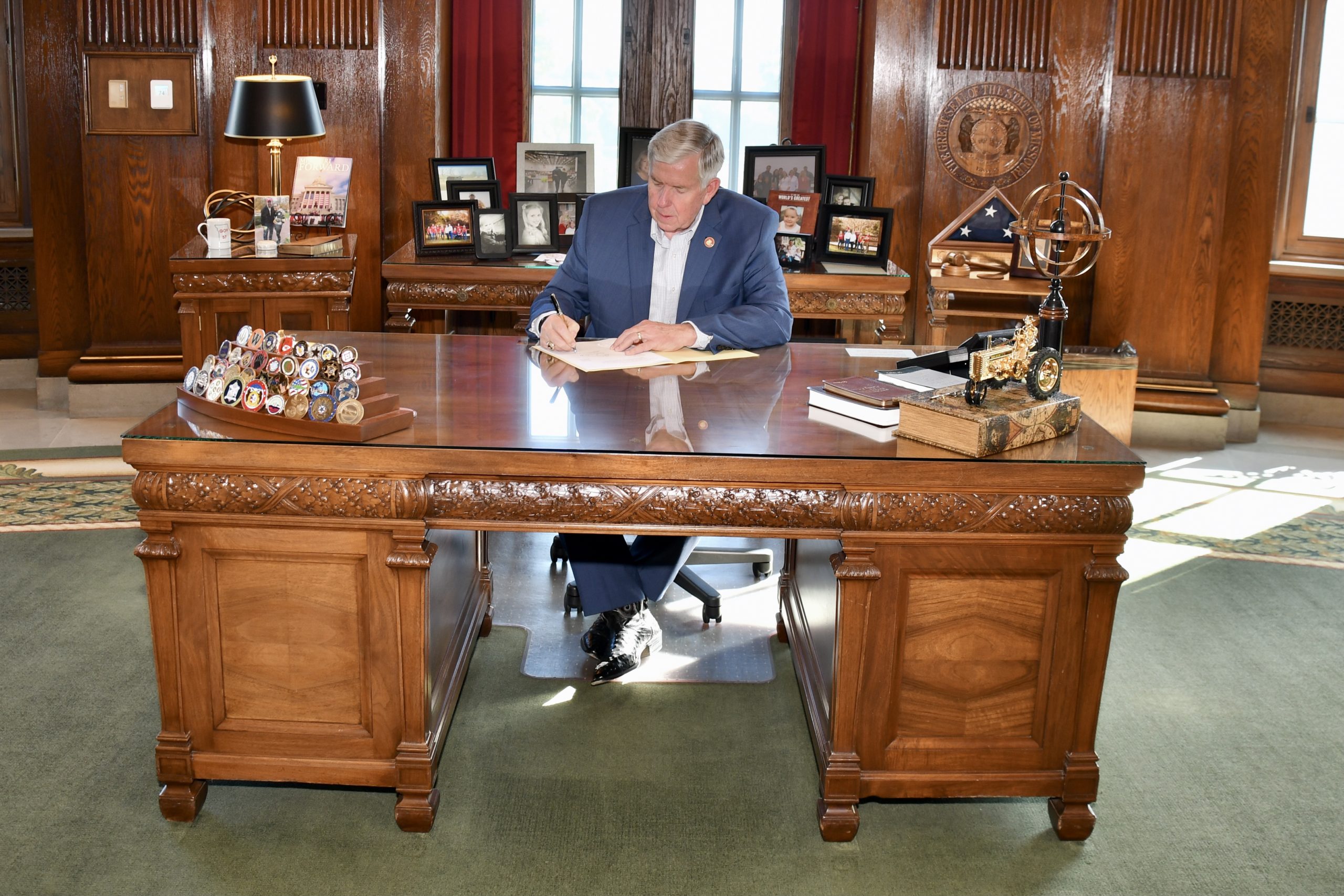On May 6, House Bill (HB) 2090 was passed by the Missouri House of Representatives, for the second time. The bill was delivered to Gov. Mike Parson’s desk on May 18.
HB 2090 was originally drafted and passed through the House as a mundane bill that allows for state employees to be paid bi-weekly. The original bill was passed through the House unanimously on a vote of 134-0.
However, HB 2090 received significant changes in the form of Senate amendments. Sen. Dan Hegeman (R-Andrew County) added a tax rebate that would allow for both individuals and married couples filing in Missouri to claim a rebate equal to their income tax liability, with a maximum rebate of $500 for individuals and $1,000 for couples.
If a couple or individual is filing with less income tax liability than the maximum, they will receive the lesser amount. Sen. John Rizzo (D-Jackson County) added an annual income cap to limit those who could receive the rebate, the cap being $150,000 for individuals and $300,000 for couples.
A similar type of income-tax-based rebate didn’t pass the Senate as a stand alone bill prior to being added to HB 2090 as an amendment.
In the view of AARP and the Missouri Budget Project, this tax rebate leaves out those who need it most. Due to the rebate being income-tax based and increasing as one’s income tax liability increases, those who make lower income will see less relief, if any.
“Those who earn too little to pay income taxes aren’t a part of this, they’re paying other taxes, they’re contributing to general revenue, but they’re left entirely out of this,” Traci Gleason, a spokesperson for the Missouri Budget Project said.
Low income Missouri families pay over 9% of their income in taxes, even with a smaller amount of income tax liability. In contrast, the richest 1% of Missourians pay about 6% of their total income in taxes.
According to an analysis of the bill provided by the Missouri Budget Project, 36% of Missouri taxpayers including senior citizens, low wage families and Missouri residents most impacted by the economic consequences of COVID-19 won’t see any relief from the bill.
“It was initially pitched as this economic recovery payment. You know, people are dealing with inflation and rising costs. But with the structure of it, it leaves behind the Missouri taxpayers who are most struggling to afford gasoline to put food on their table, to otherwise make ends meet,” Gleason said.
“And that includes families that are working but have low incomes, as well as seniors with fixed incomes. And so it really leaves out the folks that need it most.”
AARP Missouri has joined the effort to pressure Parson into vetoing HB 2090.
“Older adults shouldn’t be left out of a tax rebate when they’re struggling to put food on the table and pay for essential medications, and neither should their kids or grandchildren,” said Jay Hardenbrook, advocacy director for AARP Missouri.
“We should either make sure the Missourians who need it most are included, or instead use the funds to strengthen state services for all of us.”
Parson has recently spoken about the possibility of vetoing the bill over concerns about Sen. Rizzo’s income cap cutting out high-earning Missourians from the rebate, STL today reported.

I’m a journalist hailing from the Detroit area. I love to tell investigative stories with a focus on everyday people.
You can contact me by email at matthew@missouritimes.com
















